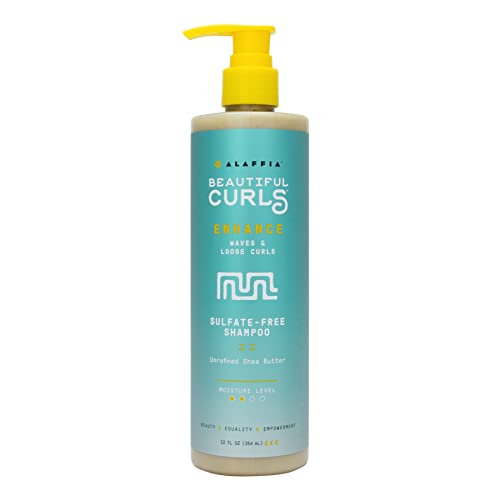
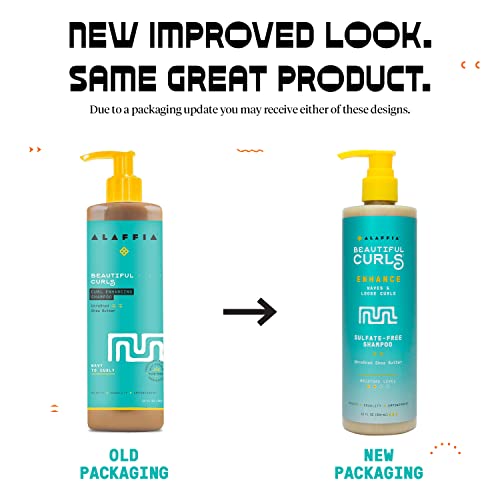
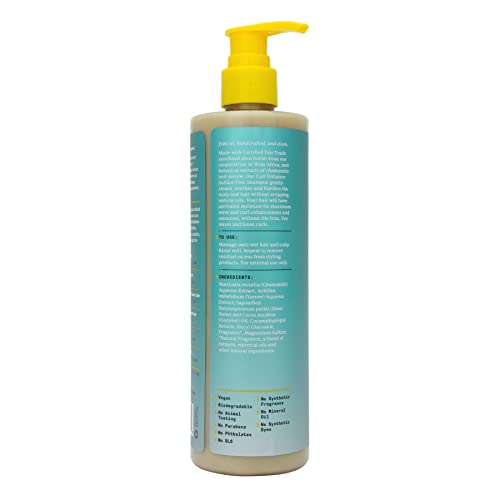
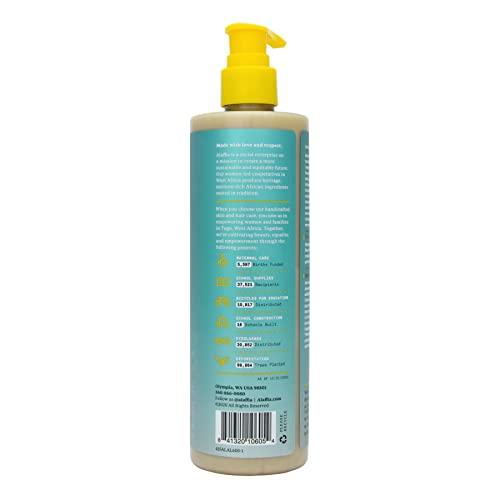
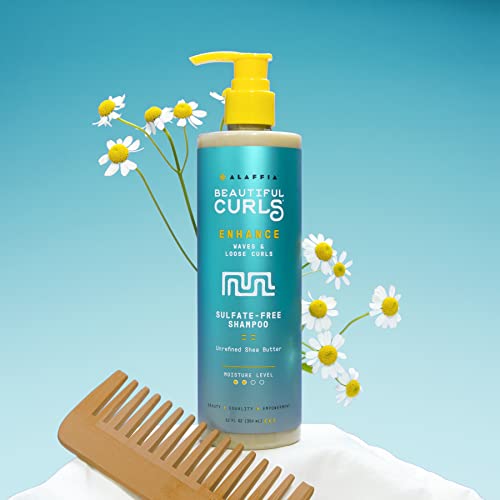
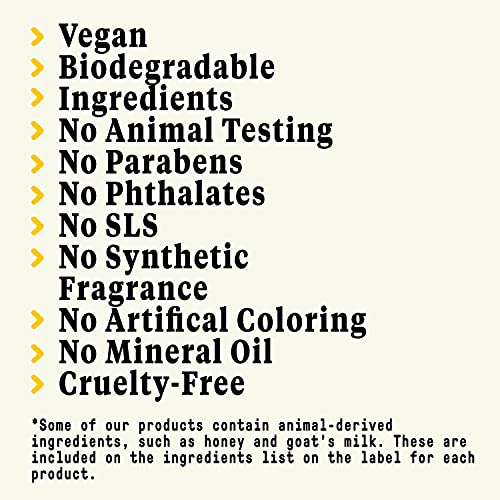
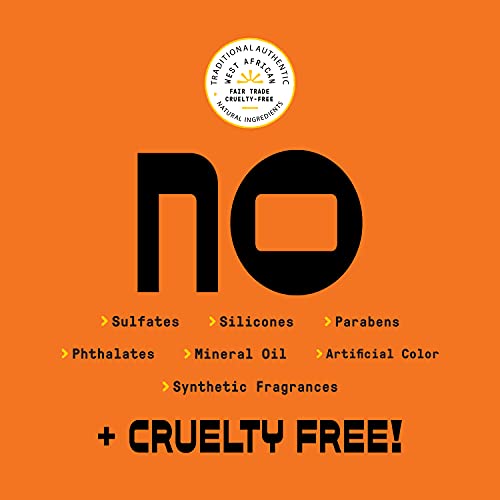

Alaffia Beautiful Curls Shampoo - Moisturizes & Defines Kinky Curls with Shea Butter, 12 Fl Oz


Fragrance
High RiskFragrance refers to a mixture of aromatic compounds used in products to provide scent. It is commonly listed as 'fragrance' or 'parfum' on product labels and can serve various functions, including enhancing user experience and masking undesirable odors.
Sustai Insights
Fragrance offers functional benefits by improving product appeal; however, it poses significant health risks, notably a high likelihood of causing allergies and allergic contact dermatitis. Environmental risks include potential pollution and endocrine disruption, though its overall carcinogenicity is low. Regulatory bodies have noted concerns regarding its use, leading to a high-risk classification. Safe usage practices should be observed, and alternatives such as natural essential oils are recommended for those sensitive to synthetic fragrances.
Cocamidopropyl Betaine
High RiskCocamidopropyl betaine is a synthetic surfactant derived from coconut oil, commonly used in personal care products for its mild cleansing and foaming properties. It functions as a surfactant, emulsifier, and thickening agent, contributing to the texture and performance of formulations.
Sustai Insights
Cocamidopropyl betaine offers functional benefits as a gentle surfactant, enhancing product foaming and texture. However, it may pose low to moderate allergenic risks and is subject to high use restrictions due to contamination concerns. Regulatory bodies have advised on its safe levels of usage, categorizing its risk level as high overall. Users should practice caution, particularly with sensitive populations, and consider alternatives like naturally derived surfactants for safer formulations.
Achillea Millefolium (Common Yarrow) Extract
Medium RiskAchillea millefolium extract, commonly known as common yarrow extract, is derived from the flowering plant Achillea millefolium. It is used in cosmetic formulations for its various properties, including soothing and anti-inflammatory effects.
Sustai Insights
Achillea millefolium extract offers functional benefits such as skin soothing and potential anti-inflammatory effects, which can enhance product efficacy. It is generally considered low risk for carcinogenicity and developmental toxicity, while showing moderate concerns for allergies. Environmental risks are also low, with no evidence of bioaccumulation. Regulatory bodies have not placed significant restrictions on its use. Safe practices should still be observed due to moderate allergenic potential, and alternatives may be considered for those with sensitivities. Overall, the risk level associated with this ingredient is medium.
Saponified Butyrospermum Parkii (Shea Butter)
Low RiskSaponified Butyrospermum Parkii (Shea Butter) is derived from the nuts of the shea tree. It functions primarily as a moisturizer in cosmetic formulations, providing emollient properties that help to soften and hydrate the skin.
Sustai Insights
Saponified Butyrospermum Parkii offers effective moisturizing benefits and is typically sustainably sourced, contributing to its positive sustainability profile. Health impacts are minimal, with low concerns regarding carcinogenicity, allergies, and reproductive toxicity. Environmental risks are also low, with no significant pollutant or bioaccumulation concerns. Regulatory status is favorable, with no current restrictions. Overall, the ingredient is assessed as low risk, making it a suitable choice for various applications.
Magnesium Sulfate
Low RiskMagnesium sulfate (Epsom salt) is an inorganic compound commonly used in various products for its properties as a drying agent, electrolyte, and muscle relaxant. It is often included in bath salts and personal care formulations to provide soothing effects.
Sustai Insights
Magnesium sulfate is effective as a muscle relaxant and is considered biodegradable, making it a sustainable choice. Health risks are minimal, with low concerns for carcinogenicity, allergenic potential, or reproductive toxicity. Environmental risks are also low, as it does not contribute significantly to pollution or bioaccumulation. Regulatory bodies have not issued significant warnings. Overall, the ingredient is assessed as low risk, with safe usage practices recommended, and it has few documented alternatives.
Decyl Glucoside
Low RiskDecyl glucoside is a glucose-based surfactant derived from natural sources, primarily used as a mild cleansing agent in personal care products. It effectively reduces surface tension, allowing for improved mixing of ingredients and enhanced cleansing properties without stripping natural oils from the skin.
Sustai Insights
Decyl glucoside offers functional benefits as a non-ionic surfactant, making it suitable for sensitive skin formulations. It is biodegradable and derived from renewable resources, supporting sustainability. Health risks are primarily low, with minimal concerns regarding irritation and allergies. Environmental risks are low, as it does not significantly contribute to pollution or bioaccumulation. Regulatory status is generally favorable, with low restrictions noted. Overall, decyl glucoside presents a low risk for use in consumer products, making it a suitable choice for gentle formulations.
Chamomilla Recutita (Matricaria) Extract
Low RiskChamomilla recutita (Matricaria) extract is derived from the flowers of the chamomile plant. It is commonly used in cosmetic formulations for its potential soothing and anti-inflammatory properties. This extract is often included in skin care products aimed at reducing irritation and enhancing skin comfort.
Sustai Insights
Chamomilla recutita extract offers functional benefits such as anti-inflammatory and soothing properties, making it valuable in cosmetics for sensitive skin. It is considered low risk regarding health concerns like carcinogenicity, allergenic potential, and neurotoxicity, with no significant environmental hazards reported. Regulatory bodies have not issued major restrictions. Overall, this ingredient can be safely utilized in cosmetic products with low health and environmental risk.
Cocos Nucifera (Coconut) Oil
Low RiskCocos Nucifera (Coconut) Oil is derived from the kernels of the coconut palm. It is primarily used in cosmetic formulations for its emollient and moisturizing properties, making it suitable for skin and hair care products.
Sustai Insights
Coconut oil serves as an effective moisturizer and emollient, promoting skin hydration and softness. It is sustainably sourced and biodegradable. Health risks are minimal, with low concerns regarding carcinogenicity, allergens, and reproductive toxicity. Environmental impact is also low, as it does not contribute significantly to pollution or bioaccumulation. Regulatory bodies have not issued restrictions on its use. Overall, coconut oil presents a low risk for health and environmental concerns, making it a safe ingredient in cosmetic products.
Saponified Butyrospermum Parkii (Shea Butter)
Low RiskSaponified Butyrospermum Parkii (Shea Butter) is derived from the nuts of the shea tree. It functions primarily as a moisturizer in cosmetic formulations, providing emollient properties that help to soften and hydrate the skin.
Sustai Insights
Saponified Butyrospermum Parkii offers effective moisturizing benefits and is typically sustainably sourced, contributing to its positive sustainability profile. Health impacts are minimal, with low concerns regarding carcinogenicity, allergies, and reproductive toxicity. Environmental risks are also low, with no significant pollutant or bioaccumulation concerns. Regulatory status is favorable, with no current restrictions. Overall, the ingredient is assessed as low risk, making it a suitable choice for various applications.
Magnesium Sulfate
Low RiskMagnesium sulfate (Epsom salt) is an inorganic compound commonly used in various products for its properties as a drying agent, electrolyte, and muscle relaxant. It is often included in bath salts and personal care formulations to provide soothing effects.
Sustai Insights
Magnesium sulfate is effective as a muscle relaxant and is considered biodegradable, making it a sustainable choice. Health risks are minimal, with low concerns for carcinogenicity, allergenic potential, or reproductive toxicity. Environmental risks are also low, as it does not contribute significantly to pollution or bioaccumulation. Regulatory bodies have not issued significant warnings. Overall, the ingredient is assessed as low risk, with safe usage practices recommended, and it has few documented alternatives.
Achillea Millefolium (Common Yarrow) Extract
Medium RiskAchillea millefolium extract, commonly known as common yarrow extract, is derived from the flowering plant Achillea millefolium. It is used in cosmetic formulations for its various properties, including soothing and anti-inflammatory effects.
Sustai Insights
Achillea millefolium extract offers functional benefits such as skin soothing and potential anti-inflammatory effects, which can enhance product efficacy. It is generally considered low risk for carcinogenicity and developmental toxicity, while showing moderate concerns for allergies. Environmental risks are also low, with no evidence of bioaccumulation. Regulatory bodies have not placed significant restrictions on its use. Safe practices should still be observed due to moderate allergenic potential, and alternatives may be considered for those with sensitivities. Overall, the risk level associated with this ingredient is medium.
Decyl Glucoside
Low RiskDecyl glucoside is a glucose-based surfactant derived from natural sources, primarily used as a mild cleansing agent in personal care products. It effectively reduces surface tension, allowing for improved mixing of ingredients and enhanced cleansing properties without stripping natural oils from the skin.
Sustai Insights
Decyl glucoside offers functional benefits as a non-ionic surfactant, making it suitable for sensitive skin formulations. It is biodegradable and derived from renewable resources, supporting sustainability. Health risks are primarily low, with minimal concerns regarding irritation and allergies. Environmental risks are low, as it does not significantly contribute to pollution or bioaccumulation. Regulatory status is generally favorable, with low restrictions noted. Overall, decyl glucoside presents a low risk for use in consumer products, making it a suitable choice for gentle formulations.
Chamomilla Recutita (Matricaria) Extract
Low RiskChamomilla recutita (Matricaria) extract is derived from the flowers of the chamomile plant. It is commonly used in cosmetic formulations for its potential soothing and anti-inflammatory properties. This extract is often included in skin care products aimed at reducing irritation and enhancing skin comfort.
Sustai Insights
Chamomilla recutita extract offers functional benefits such as anti-inflammatory and soothing properties, making it valuable in cosmetics for sensitive skin. It is considered low risk regarding health concerns like carcinogenicity, allergenic potential, and neurotoxicity, with no significant environmental hazards reported. Regulatory bodies have not issued major restrictions. Overall, this ingredient can be safely utilized in cosmetic products with low health and environmental risk.
Fragrance
High RiskFragrance refers to a mixture of aromatic compounds used in products to provide scent. It is commonly listed as 'fragrance' or 'parfum' on product labels and can serve various functions, including enhancing user experience and masking undesirable odors.
Sustai Insights
Fragrance offers functional benefits by improving product appeal; however, it poses significant health risks, notably a high likelihood of causing allergies and allergic contact dermatitis. Environmental risks include potential pollution and endocrine disruption, though its overall carcinogenicity is low. Regulatory bodies have noted concerns regarding its use, leading to a high-risk classification. Safe usage practices should be observed, and alternatives such as natural essential oils are recommended for those sensitive to synthetic fragrances.
Cocamidopropyl Betaine
High RiskCocamidopropyl betaine is a synthetic surfactant derived from coconut oil, commonly used in personal care products for its mild cleansing and foaming properties. It functions as a surfactant, emulsifier, and thickening agent, contributing to the texture and performance of formulations.
Sustai Insights
Cocamidopropyl betaine offers functional benefits as a gentle surfactant, enhancing product foaming and texture. However, it may pose low to moderate allergenic risks and is subject to high use restrictions due to contamination concerns. Regulatory bodies have advised on its safe levels of usage, categorizing its risk level as high overall. Users should practice caution, particularly with sensitive populations, and consider alternatives like naturally derived surfactants for safer formulations.
Cocos Nucifera (Coconut) Oil
Low RiskCocos Nucifera (Coconut) Oil is derived from the kernels of the coconut palm. It is primarily used in cosmetic formulations for its emollient and moisturizing properties, making it suitable for skin and hair care products.
Sustai Insights
Coconut oil serves as an effective moisturizer and emollient, promoting skin hydration and softness. It is sustainably sourced and biodegradable. Health risks are minimal, with low concerns regarding carcinogenicity, allergens, and reproductive toxicity. Environmental impact is also low, as it does not contribute significantly to pollution or bioaccumulation. Regulatory bodies have not issued restrictions on its use. Overall, coconut oil presents a low risk for health and environmental concerns, making it a safe ingredient in cosmetic products.
Experience the beauty of your curls with Alaffia Beautiful Curls Curl Enhancing Cream Shampoo. This sulfate-free formula cleanses without stripping essential oils, providing the moisture necessary for vibrant, frizz-free curls. Perfect for coily to curly hair, it features fair trade shea butter and botanical extracts that nourish and activate your natural texture.
- Sulfate-Free Formula: Gently cleanses while retaining natural oils, ensuring maximum curl activation without dryness.
- Moisture-Rich Ingredients: Enriched with fair trade unrefined shea butter and essential oils for deep hydration and curl definition.
- Vegan & Cruelty-Free: Made with clean, plant-based ingredients, free from sulfates, parabens, and synthetic fragrances, aligning with sustainable beauty practices.
- Easy Application: Simple directions for effective use; just massage into wet hair, rinse, and follow with conditioner for best results.
- Socially Responsible: Alaffia is committed to empowering communities in Togo, West Africa, through fair trade initiatives, making each purchase meaningful.
Subscribe & Save with Sustai
- Best Price Guarantee: Always enjoy the lowest prices on sustainable home essentials.
- No Surprises: We’ll notify you before shipping. No hidden fees, ever.
- You’re in Charge: Change, pause, or cancel your subscription anytime with ease.
- Eco-Friendly Deliveries: Our grouped shipments mean less packaging and lower emissions.
Join us on a sustainable journey. Special offers for a limited time! Prices and promotions may change.
Recommended Products
Experience the beauty of your curls with Alaffia Beautiful Curls Curl Enhancing Cream Shampoo. This sulfate-free formula cleanses without stripping essential oils, providing the moisture necessary for vibrant, frizz-free curls. Perfect for coily to curly hair, it features fair trade shea butter and botanical extracts that nourish and activate your natural texture.
- Sulfate-Free Formula: Gently cleanses while retaining natural oils, ensuring maximum curl activation without dryness.
- Moisture-Rich Ingredients: Enriched with fair trade unrefined shea butter and essential oils for deep hydration and curl definition.
- Vegan & Cruelty-Free: Made with clean, plant-based ingredients, free from sulfates, parabens, and synthetic fragrances, aligning with sustainable beauty practices.
- Easy Application: Simple directions for effective use; just massage into wet hair, rinse, and follow with conditioner for best results.
- Socially Responsible: Alaffia is committed to empowering communities in Togo, West Africa, through fair trade initiatives, making each purchase meaningful.

You can have at most 2 Sustainable Steals products in your cart
Customer Reviews
Customers’ View
Customers appreciate the Curl Enhancing Shampoo for its gentle, sulfate-free formula that cleanses without stripping essential moisture from curly hair. Many users highlight the product's ability to enhance curl definition while effectively controlling frizz, making their hair feel hydrated and bouncy. The inclusion of plant-based ingredients, such as fair trade shea butter and essential oils, aligns with the values of environmentally and health-conscious consumers. Some feedback indicates concerns about product consistency and quality, particularly regarding color and texture in certain batches. Overall, customers find this shampoo to be a valuable addition to their curly hair care routine, supporting both their hair's health and ethical sourcing practices.
AI-generated from the text of customer reviewsThis product is rated 5.0 of 5.0 stars.
It has received 1 review.




